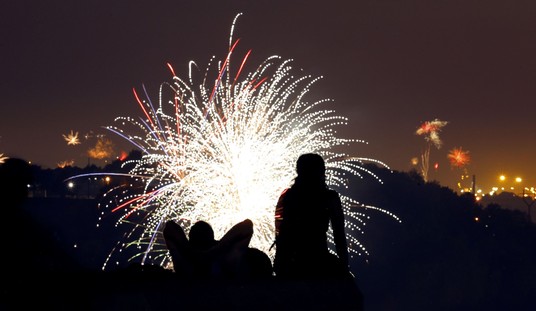Now is the time at Ed Driscoll.com when we juxtapose!
“They are a generation or two of affluent, urban adults who are now happily sailing through their thirties and forties, and even fifties, clad in beat-up sneakers and cashmere hoodies,” writes Adam Sternbergh in New York. “It’s about a brave new world whose citizens are radically rethinking what it means to be a grown-up and whether being a grown-up still requires, you know, actually growing up.”
— From Mark Steyn’s After America: Get Ready for Armageddon.
Cover of the London Sun on Wednesday:

(Concept via SDA.)
Update: “The riots should surprise no one who’s been paying attention,” Theodore Dalrymple adds:
The riots are the apotheosis of the welfare state and popular culture in their British form. A population thinks (because it has often been told so by intellectuals and the political class) that it is entitled to a high standard of consumption, irrespective of its personal efforts; and therefore it regards the fact that it does not receive that high standard, by comparison with the rest of society, as a sign of injustice. It believes itself deprived (because it has often been told so by intellectuals and the political class), even though each member of it has received an education costing $80,000, toward which neither he nor—quite likely—any member of his family has made much of a contribution; indeed, he may well have lived his entire life at others’ expense, such that every mouthful of food he has ever eaten, every shirt he has ever worn, every television he has ever watched, has been provided by others. Even if he were to recognize this, he would not be grateful, for dependency does not promote gratitude. On the contrary, he would simply feel that the subventions were not sufficient to allow him to live as he would have liked.
At the same time, his expensive education will have equipped him for nothing. His labor, even supposing that he were inclined to work, would not be worth its cost to any employer—partly because of the social charges necessary to keep others such as he in a state of permanent idleness, and partly because of his own characteristics. And so unskilled labor is performed in England by foreigners, while an indigenous class of permanently unemployed is subsidized.
The culture of the person in this situation is not such as to elevate his behavior. One in which the late Amy Winehouse—the vulgar, semicriminal drug addict and alcoholic singer of songs whose lyrics effectively celebrated the most degenerate kind of life imaginable—could be raised to the status of heroine is not one that is likely to protect against bad behavior.
And in the emailed version of his G-File this week, Jonah Goldberg writes:
Today’s column is on the riots in England. I think it’s a fascinating topic, which might be why I begin the column by saying, “Riots are fascinating things.” One of the most interesting things about them is how people react to them. There are few topics that can separate people ideologically as efficiently. If I ask you what you think about, say, Communism, your answer will tell me a lot about what you think (and what you know). And if you begin your answer with something along the lines of “It’s complicated,” odds are you’re a liberal or some other species of leftist. This is not to say that Communism isn’t a complicated subject in terms of its history, its varied manifestations, and all that. But when you start out with the “it’s complicated” business, more often than not you’re about to front load some apologies for something that deserves no apologies.
The same goes for riots. If you begin a sentence saying that nothing excuses wanton mob violence and theft, but refuse to come to a full-stop with a period or, better yet, an exclamation point, you know that there’s a “but” coming that will invalidate all of the platitudes that came before it. When someone says, “There’s no excuse for violence, but . . . ,” that “but” is a Pandora’s box of leftist banshees that have left human wreckage in their wake for millennia.
Ultimately, the Left’s weakness for riots stems, I believe, from two things: statist paternalism and power-worship. It’s an amazingly reactionary sentiment when you think about it. The lower classes are savages who need the benign power of the state to keep them from acting on their savage instincts. When the state doesn’t nurture and civilize them, the urban masses revert to their animal natures. The Left doesn’t condone the violence, of course, they just say the violence is to be expected when conservatives cut social spending. Or as I put it in my column, “In other words, the cuts don’t justify the violence, but the threat of violence justifies avoiding cuts.” On a cynical level, when the lower classes rise up and wreak havoc, the self-appointed spokesmen for society’s “victims” see an opportunity to press their advantage. They hold up the mob like a Medusa’s Head, to petrify the bourgeoisie into making ever more concessions.
As for power worship, there’s always been something about the power of crowds that seduces the leftist mind (see Liberal Fascism). There’s also something about the “authenticity” of street thugs that’s intoxicating to liberals and way too many young people generally, particularly if there’s a racial component thrown in. (If the Black Panthers were white, everyone would instantly recognize them as indistinguishable from neo-Nazis.) How else to explain how so many middle class and even upper class criminals got caught up in this authentic expression of lumpenproletarian rage?
Anyway, it all brought to mind this poem from Hilaire Belloc:
We sit by and
watch the Barbarian, we tolerate him; in
the long stretches of peace we are not
afraid. We are tickled by his irreverence,
his comic inversion of our old certitudes
and our fixed creeds refreshes us; we
laugh. But as we laugh, we are watched
by large and awful faces from beyond:
and on these faces there is no smile.
Or to put it another way, “This is known as ‘bad luck.'”
And finally, more from Mark in his weekly column: “Big Government means small citizens: it corrodes the integrity of a people, catastrophically. Within living memory, the city in flames on our TV screens every night governed a fifth of the Earth’s surface and a quarter of its population. When you’re imperialists on that scale, there are bound to be a few mishaps along the way. But nothing the British Empire did to its subject peoples has been as total and catastrophic as what a post-great Britain did to its own.”










Join the conversation as a VIP Member